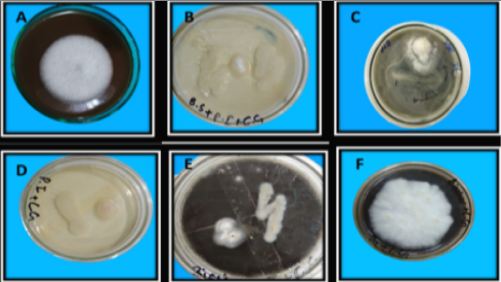Effect of Biochar and Seed Biopriming with PGR On Maize Anthracnose
Keywords:
Rice Straw Biochar, Plant Growth-Promoting Rhizobacteria (PGPR), Anthracnose Disease Management, Maize (Zea mays), Sustainable AgricultureAbstract
With global food security being under threat due to crop pathogens, the use of chemical pesticides results in soil degradation, resistant pathogens, and environmental hazards. Biochar acts as an eco-friendly source of managing plant pathogens mitigating disease severity and enhancing soil quality. The objective of this research is to evaluate the synergetic effect of Rice straw biochar (RB) with Plant growth-promoting rhizobacteria (PGPR), specifically Bacillus subtilis (BS) and Pseudomonas fluorescens (PF) against anthracnose in maize caused by Colletotrichum graminicola (CG). Inoculated and uninoculated maize were gown in 3% Rice straw biochar under greenhouse conditions, with and without PGPRs. The treated plants demonstrated significant improvements in growth, shoot, and root mass while also enhancing antioxidant enzymatic activities, reducing the disease severity by up to 80%. The synergistic effect of biochar and PGPRs not only suppressed C. graminicola growth but also improved soil fertility and plant nutrient uptake. This study has revealed the combined application of biochar with PGPRs enhanced plant growth and soil quality by improving the uptake and absorption of nitrogen by the plant. And provided resistance in maize against C. graminicola. Moreover, the plants grown in 3% RB amended soil, treated with PGPRs showed increased activity of anti-oxidant enzymes peroxidase and catalase along with higher chlorophyll contents compared to the non-amended plants proving the integrative strategy to be a sustainable alternative to chemical pesticide, providing an environmentally friendly approach to combat plant pathogens.


















